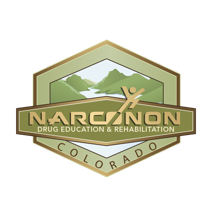Is the Fentanyl Vaccine Just MAT in a Prettier Package?

The opioid crisis is a problem that society has fought now for a long time. The problem has persisted for over twenty years despite efforts to get it under control. Billions of dollars have been spent fighting opioids, only to see the number of overdose deaths increase over time. Each year brings a new bright idea of how to properly fight the crisis with none being the one solution that starts to fix everything.
Case in point, medication-assisted treatment has been used for years to try to support opioid addicts in their recovery process; however, MAT drugs wind up being one more substance a drug user becomes dependent on.
Currently, a new vaccine is being researched to help opioid users build immunity to fentanyl. While being considered a vaccine, it appears that this is merely a new type of MAT treatment, not a new, novel approach to addiction treatment. And it’s smoke and mirrors packaging may prevent users from seeking help from treatment centers.
What is the Fentanyl Vaccine Really?
Fentanyl is a synthetic opioid that is thousands of times stronger than morphine and has led to tens of thousands of overdoses per year in the United States. Researchers at the University of Houston are working on a vaccine that targets fentanyl specifically by encouraging antibodies to form and bind to opioid molecules, a process that is not known to occur in nature. Antibodies normally attack disease, and details on how this “vaccine” molecule might actually operate are sketchy.
The vaccine would supposedly work by protecting the brain and nervous system by blocking the action of fentanyl. According to Therese Koston, director of the Developmental, Cognitive & Behavioral Neuroscience program at the University of Houston, the team is also evaluating the effectiveness of multi-dose strategies followed by single-dose immunization.
There are two problems with this approach. First off, it sounds like another potential miracle cure for fentanyl overdoes that is being touted as a vaccine when in reality it’s just another MAT treatment. The inherent problem with this is that these types of solutions often prevent people who are suffering from substance abuse from reaching out to treatment centers to handle the root of why they’re addicted. Options like MAT offer an easier way out of addiction without a person having to put their life on hold and enter into a treatment center. The apparency is that a person can handle their addiction mostly on an outpatient basis and continue their life as usual and not have to make any sacrifices to get sober. MAT drugs appear to only handle certain symptoms of substance abuse and don’t get to the root of the problem as evidenced by the high relapse rate when MAT drugs are discontinued.
The second problem is that this treatment is being sold to potential consumers (drug users) as a vaccine when no virus exists. The concept of a vaccine is to boost the body’s ability to fight off a specific type of virus or bacteria. According to Miriam-Webster, the definition of a vaccine is:
“an antigenic preparation of a typically inactivated or attenuated (see ATTENUATED sense 2) pathogenic agent (such as a bacterium or virus) or one of its components or products (such as a protein or toxin).”
A “fentanyl vaccine” appears to be nothing more than a shameless marketing ploy targeted at desperate consumers during a period of time when the term “vaccine” is causing definite emotional reactions. While the method of action described is similar to vaccination, it is highly experimental. This “vaccine” appears, in the author’s opinion, to just be another form of MAT but in a prettier package.
The solution has always been and will always be effective treatment programs. Drug users need treatment in a treatment center where they don’t have access to drugs and can focus on handling their actual issues. If their actual issues were that they had a natural deficiency in buprenorphine, that would be a different story, but that’s not the case. The one thing all drug users have in common is that they have an inability to cope. Drugs became their only coping mechanism. You don’t cure that with more drugs, medications, or even vaccines. Those issues get addressed in treatment centers with treatment professionals who can help a person overcome their addiction by helping them figure out how to cope with life and life’s problems, help them fix their current issues, and teach them how to live a relatively normal life. It’s a hard undertaking and it takes a lot of willingness to be willing to face that, but it’s the only way out of addiction. No one should ever think taking a pill is ever going to cure anything because that’s the same mentality that gets a person addicted to begin with.
Sources:


